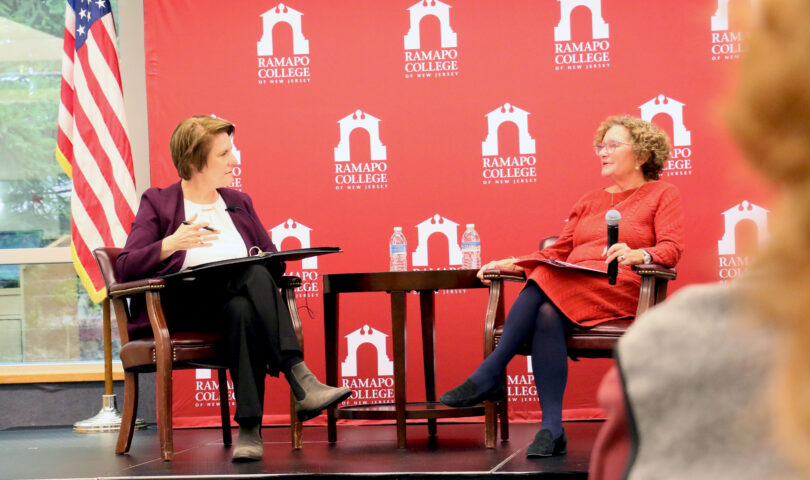President Cindy Jebb continued the Presidential Speaker Series on Monday by inviting Dr. Nancy Cantor, chancellor of Rutgers University-Newark, to participate in a discussion titled “Higher Education & The Public Good.”
Cantor is a social psychologist and a well-known advocate for strengthening diversity in higher education. She previously served as the first woman chancellor at both Syracuse University and University of Illinois at Urbana-Champaign (UIUC), and was the provost at the University of Michigan (U-M). While at U-M, she was involved in defending affirmative action in the 2003 Supreme Court cases Grutter v. Bollinger and Gratz v. Bollinger.
Jebb began by asking Cantor to discuss her background and journey with higher education. Cantor touched on how much her “activist family” influenced her approach to higher education, referencing Anita Hill’s 2002 New York Times op-ed, “Insider Women With Outsider Values.”
“That has been for me a sort of touchstone, if you will… of my life in higher ed. That is, to really keep in mind the outsider values of my growing up,” she said. “I never saw myself, and still don’t, as the sort of traditional figure within the academy.”
Cantor reflected on her early years of working in higher education at the then-male-dominated Princeton University and how she had a completely different experience when she moved to U-M.
“There were just amazing senior women, and it really taught me the value of critical mass,” she said. “I wasn’t representing something. I was with a whole variety… It brings out the understanding that everybody needs to have that there’s as much within-group variation as there is between-group variation.”
Diversity was the main topic of discussion between Jebb and Cantor. Cantor emphasized how she always keeps diversity at the front of her mind, in part because of her social psychology background.
“We all need to get beyond what social psychologists call the ‘fundamental attribution error,’ which is that all of us think we can make all the change in the world,” she said. “You have to learn how to really reap the benefit of the collective intelligence.”
Cantor also shared how much she has found “odd partnerships,” such as with government institutions or corporate entities, to be vital in succeeding her higher education endeavors. She specifically mentioned how surprised she was that the military played a role in winning the affirmative action Supreme Court cases.
“There’s no way we would have won that case without Colin Powell and the military stepping forward,” she said.
Cantor explained that public or private status has no influence on whether colleges serve a “public good” to the surrounding communities. From her own experiences, the private Syracuse was much more engaged with the community than the public UIUC.
She compared how the universities engaged with the nearby Indigenous communities. Her main purpose of work at UIUC was bringing diversity to the campus but, despite the large Indigenous population in the Chicago area, she faced challenges in the 2000s with changing their “fake Indian” mascot, Chief Illiniwek.
In contrast, at Syracuse, Cantor was more easily able to connect with the Onondaga and Haudenosaunee tribes and bridge the gap between them and the school. She described these connections and the accomplishments of setting up the Haudenosaunee Promise scholarship program, Indigenous language program and history program at Syracuse as one of her “most treasured life experiences in the academy.”
As the conversation came to a close, Jebb brought the conversation back home, asking how Cantor feels New Jersey higher education can improve. Cantor highlighted collaboration and an emphasis on diversity as the biggest factors.
“I would love to see New Jersey’s higher ed institutions… really understand that to do great scholarship, to create the next generation of leaders, to really serve the public good and our communities, we cannot do it in an isolated, narrow fashion, that we have to be a part of the broader world,” she said.
rgatherc@ramapo.edu
Featured photo by Rebecca Gathercole






